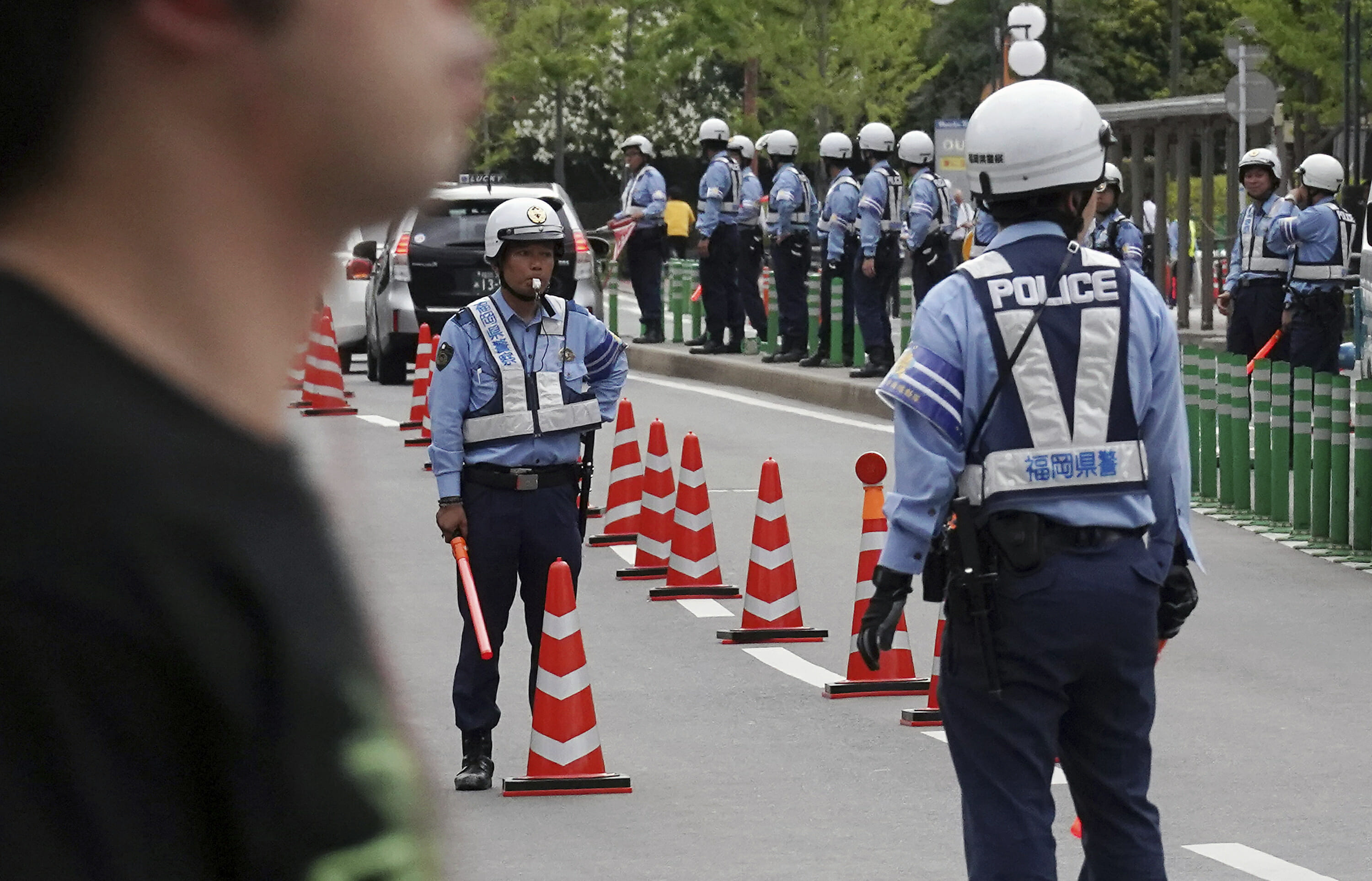
Trade war clouds outlook as finance chiefs meet in Japan
FUKUOKA, Japan (AP) — Finance ministers and central bank governors meeting in Japan this weekend will try to make headway on longstanding issues such as how much global giants like Facebook and Amazon should pay in taxes.
They’re likely to end up focusing a large share of their attention, however, on how to keep global growth on track when the world’s two biggest economies are entrenched in an escalating trade war.
U.S. Treasury Secretary Steven Mnuchin, who has headed trade talks with Beijing along with U.S. Trade Representative Robert Lighthizer, was due to meet with Yi Gang, governor of China’s central bank, on the sidelines of the G-20’s annual financial gathering in Fukuoka in southern Japan.
But it was unclear if their meeting, a possible prelude to talks at the G-20 summit later this month between President Donald Trump and Chinese President Xi Jinping, might lead to a restart of those talks after weeks of stalemate.
As the Trump administration prepares to expand retaliatory tariff hikes of up to 25% to another $300 billion of Chinese products, Beijing has sought to highlight China’s capacity to endure and overcome hardship.
Yi told Bloomberg Television in an interview broadcast Friday that he expected the meeting with Mnuchin to be “difficult.” But he said China’s central bank, the People’s Bank of China, had plenty of room to maneuver to help keep the economy growing despite the pounding the country’s export manufacturers are taking as the toll from higher tariffs mounts.
Speaking Thursday in France, Trump said he plans to make a decision about ramping up tariffs on China after speaking with Xi at the summit in Osaka at the month’s end.
“I will make that decision I would say over the next two weeks — probably right after the G-20,” he said.
The Trump administration began slapping tariffs on imports of Chinese goods nearly a year ago, accusing China of resorting to predatory tactics to give Chinese companies an edge in advanced technologies such as artificial intelligence, robotics and electric vehicles. These tactics, the U.S. contends, include hacking into U.S. companies’ computers to steal trade secrets, forcing foreign companies to hand over sensitive technology in exchange for access to the Chinese market and unfairly subsidizing Chinese tech firms.
Trump has also complained repeatedly about America’s huge trade deficit with China — a record $379 billion last year — which he blames on weak and naive negotiating by previous U.S. administrations.
The United States now is imposing 25% taxes on $250 billion in Chinese goods. Beijing has counterpunched by targeting $110 billion worth of American products, focusing on farm goods such as soybeans in a deliberate effort to inflict pain on Trump supporters in the U.S. heartland.
Unease over trade tensions and their potential impact on other economies has deepened since Trump announced he would impose a 5% tax on Mexican products starting Monday — a tax that would reach 25% by Oct. 1 if the Mexican government fails to stop the flow of Central American migrants into the United States.
Trump said Friday in a tweet that there was a “good chance” to make a deal with Mexico. If so, “they will begin purchasing Farm & Agricultural products at very high levels, starting immediately. If we are unable to make the deal, Mexico will begin paying Tariffs at the 5% level on Monday!”
While the tariffs have taken a minor toll on the U.S. economy, the uncertainty and slowing demand are rippling across the globe. Earlier this week, the World Bank downgraded its forecast for the global economy in light of trade conflicts, financial strains and unexpectedly sharp slowdowns in wealthier countries.
The weakness has prompted central banks, most recently in Australia and India, to slash interest rates to fend off recession.
A sharp pullback in U.S. hiring for May intensified fears that the economy has weakened and that many employers have grown nervous, in part from trade conflicts. Yet the stock market soared and bond yields fell on Friday because it raised hopes that the Federal Reserve might cut interest rates in the coming months, perhaps as early as July, to support the economy.
Japan, hosting the G-20 for the first time since it was founded in 1999, has plumbed the limits of that strategy. The Bank of Japan’s policy interest rate has been at minus 0.1% for years, to keep credit cheap and support a modest pace of expansion.
As the trade conflicts percolate, the officials gathering in Fukuoka, a bustling port city on the southern main island of Kyushu, will carry on chipping away at financial reforms and other perennial issues.
Some European members of the G-20, especially, want to see minimum corporate tax rates for big multinationals.
Japan’s Kyodo News service reported Friday, citing a draft communique, that the finance leaders are also discussing the issue of how developing countries are handling debts incurred through major construction projects, efforts to combat money laundering and to prevent terrorist groups from using cybercurrencies as a source of funding.
The Western Journal has not reviewed this Associated Press story prior to publication. Therefore, it may contain editorial bias or may in some other way not meet our normal editorial standards. It is provided to our readers as a service from The Western Journal.
Truth and Accuracy
We are committed to truth and accuracy in all of our journalism. Read our editorial standards.
Advertise with The Western Journal and reach millions of highly engaged readers, while supporting our work. Advertise Today.












